The Western tradition of daring self-expression and frankness are unique aspects at the roots of our living cultures. They are directly related to European heroic traditions of duty and honor that are distinct from all other races’ concepts of the same words. Speech has been increasingly detached from the contextual framework of its living cultures and origin myths, leading to its inversion. Repressing “hate speech” is the purposeful indirection of this inverted simulacrum to supplant a holistic cultural tradition. This literally facilitates replacing Europeans with multiculturalism by wearing “free speech” as a skin.
Ancient European cultures had long-standing traditions of distinct speech, duty, and honor concerning organic governing bodies to unify the whole and prevent tyranny. This was inverted in ancient Rome, leading to a compounding abstraction of rulership from those ruled within the same culture. It also reversed the concept of tyranny unique to Europeans, now allowing for increasingly insidious and invisible tyranny. Modern ideas of free speech formed from decadent, detached systems that already lacked true noblesse oblige, warping into a tool of a globalizing tyrannical anti-culture.
Barbarians and Sparta
Barbarian societies did not have overly complex legal systems because there was no separation between those ruling and those ruled within a culture — aside from the phenomenon of slavery that was almost always external groups. Within their ethnos, they acted and evolved as an organic whole. The separation of the rulers and those who ruled came from empires in Asia and the Levant. There were no known restrictions to speech in barbarian groups, but there were consequences of speech related to their honor systems.
Unlike Eastern concepts of honor, European barbarian concepts were strongly tied to merit but not in the sense we now understand by utilitarian or material earning measures. Ancient merit within heroic cultures was born of contribution and self-sacrifice. Leadership, thus, was more a responsibility than an entitlement. Germanic leaders held power only if they were brave and daring for their group, and their men rose to match their courage.
Most Asiatic concepts of honor serve the cultural purpose of saving face and maintaining social perceptions of status. There was always the distinction between rulership and the ruled instead of organic bodies forming a governing system strongly emphasizing merited leadership. By contrast, frankness has always been a hallmark of heroic cultures deriving from European barbarism. Being frank is seen as courageous or courteous, while in status-based face-saving cultures, the purpose of speech is maintaining and reinforcing social status.
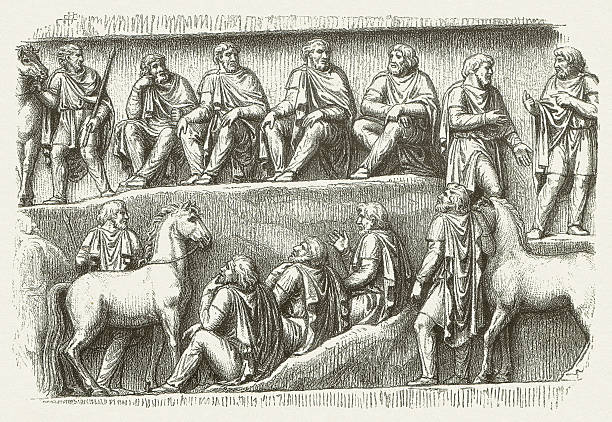
Germanic Council
The Dorian Spartans and Germania did not place any known restrictions on speech, and their leadership was expected to be most courageous — their men had to live up to that courage. There was no vast disparity between people, but they expected the respect earned by their contributions to the whole. To speak disrespectfully could lead to combat or the loss of status for a coward unwilling to back up their words or their honor — thus, their speech was not removed from their living culture, nor did it protect them from consequences. They risked their positioning in their hierarchy or were socially ostracized.
Unlike Eastern empires, Spartans and Germania had totalizing hierarchies that functioned as a direct governing system without being totalitarian — they formed from an organic whole and were not a separate top-down force. Empires, by contrast, already had drastic disparity between the populace and rulership. They lost organic cultural genesis fostered by a whole attached to and striving to contribute worthily to their members of most excellence — as was seen in hero cultures.
For our purpose, describing the Spartan hegemony from Agis I around 1000 BC is reasonable since that was the beginning of Dorian rule in the Hellas mainland. Many authors, like Plutarch, agree that Spartans exerted the most influence during the archaic period of Greece without military control — other Greeks esteemed them and constantly sought their oversight and advice. The modern vantage of Spartan hegemony was after the Peloponnesian War, but that is actually when their downfall began. Modern vantages of influence and power have fallen to direct military dominance and control. However, theirs was still the heroic vantage of Dorian merit-driven hegemony of first among equals with their fellow Greeks in the archaic period, which is something shared by Western barbarians in culture. Dominance was exerted on out-groups or concerning foreign hegemony — it did not serve inside Dorian living cultures.
Spartans lost themselves simultaneously to decadence and oligarchy by trying to hold the decadence of Athens. Agis IV, the last true king of Sparta, tried to reinstate the precepts of Lycurgus. The ephors illegally condemned him without trial, and he showed the true meaning of heroic and daring speech tied to honor in his death — the direction of his risk, speech, and efforts were to correct his culture to prevent the irreversible decay of its ethnos. As Agis IV was led to his death, he saw his officer weeping, and his last words to him were, “Stop your weeping for me, man. For despite my being put to death in such defiance of law and justice, I am superior to those who are taking my life.”
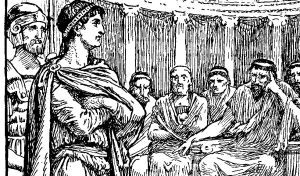
Agis IV, the last true king of Sparta
The last true king of Sparta died in the manner that the Law Giver did — he gave his life to his people because to live without trying to correct them was worse than death. Dishonor or slavery to the hero is worse than death, as is a life detached from the spirit of his culture. In his speech and selfless action, we see the uniqueness of European heroic culture — speech is directed toward the health of its identity. Living as an individuated member of excellence for the whole is more important than individually saving oneself because the spirit of the hero is directed at the unity of the whole.
Parrhesia and Isegoria Were Not Free Speech
Even Athens, not a hero culture but born in Greece under heroic Spartan cultural hegemony for over a half millennium, held the distinct Dorian Greek tradition of direct governance and daring speech. The Athenian concepts of isegoria and parrhesia have been mistranslated since the Enlightenment as synonymous with free speech, warping the modern vantage of “democracy” from its supposed origins. Purposefully ignoring the significant contrasting aspects of ancient Greek speech and over-emphasizing similarities to fit the narrative of free speech is done to falsify a tradition of free speech into ancient times that does not exist. Isegoria shows the critical difference between modern democracy and ancient democracy — the abstraction and separation of the state from the people. The “indirect” democracy we now find ourselves in is far more than just having representatives speak for us. It entirely severed the people from the state in a manner that has never been seen to this extent before in European history.
Isegoria was not a legal protection to say or express whatever you want; it was a right to participate with your voice in direct politics and only applicable in a political setting. They formed their own governing bodies, and every citizen had the right to directly address and participate in legal discourse — a right no citizen of our supposed democracy has. Isegoria is not only wholly different from free speech because they had no legal protections or restrictions on speech but instead cultural customs of propriety and consequences of harming their culture. Isegoria also outlines how different the relationship of the governing system was to the citizens in ancient Greece. Spartans and Athenians had a government for and by the people — the people being the culture itself. Now we have displaced and mechanized “states” that are not bound to the people they supposedly represent.
Parrhesia was misinterpreted like isegoria — it was not a right but considered a duty without any protections. There was no legal protection for parrhesia because, by its very nature, it was done in a state of dutiful danger. The speaker had to represent his or others’ grievances with bold and frank speech made by an inferior concerning a superior. When no consequence exists, bold speech loses its protective nature and true boldness. Parrhesia was the opposite of Athenian rhetoric and convincing; it spoke one’s truth in total, with courage in the face of real imminent consequences to correct concerns that could harm cultural cohesion.
Protected speech is not bold and daring because there are no legal consequences but full legal protections even if what is said is done to destroy one’s culture instead of correcting it. Cowardice can then wear the skin of courage if the nature of the speech is harmful to the culture and directed towards hedonistic ends. The difference between the modern culture of critique and parrhesia is that one is done for status in the material void for social perception, and the other is done for the sake of addressing an issue that superiors cannot see or ignore to maintain an organic whole of the entire culture from top to bottom. Tucker Carlson’s speech would be an example of modern-day parrhesia because he lost his career over his daring and bold speech against social norms in defense of his culture. In the not-far future, he will likely be legally targeted for his speech as well.

Tucker Carlson
How Parrhesia Relates to European Concepts of Leadership and Tyranny
The concept of parrhesia existed since archaic Greek and barbarian times, even before there was a name for it. It carried on in name through ancient and Hellenistic Greece, and the concept has been present in European cultures ever since. The Greek kings’ advisors were supposed to bring awareness to the king of their concerns or issues that their inferiors brought to them. The mark of good rulership was the ability to accept constructive criticism or to be concerned about developing problems at various levels of society, distinguishing a king from a tyrant. Tyranny was seen as any part of the whole acting in a manner that detached rulership from living local folkish cultural identity for non-protective but exploitative or selfish control.
The relationship of the inferior to the superior denoting leadership as merit-based of those of excellence willing to sacrifice for the whole of their culture is unique to Europeans. The essence of rulership is directional towards connectedness, not just a form. A tyrant is not one ruler as modern vantages now make it out to be. King Agis IV of Sparta was a true, honorable leader, and in that case, the ephors and oligarchy were acting tyrannically — they destroyed their own culture and ethnogenesis. Luxury and decadence are the crux of corruption and complacency that destroys living European cultures. The temptation of materialism eventually inverted even self-corrective measures of kings being accountable to those they ruled using the checks and balances eventually against their own good.
Rome was founded on a more materialistic paradigm than former heroic societies. It was the first trader society to subsume the hero and barbarian. Ancient Rome used a form of representative democracy, distinct from but inspired by Athenian democracy, which was the first step of fragmenting identity to globalizing modern “democracies.” The nobility called Caesar a tyrant, but they acted tyrannically; their concept of freedom was the liberal one — mercantile, individualistic, and hedonistic. Before Caesar, the aristocracy had destroyed the heroic lines of Scipio and his grandsons, the Brothers Gracchi — in the same manner ever since you see governing systems use and dispose of their heroes.
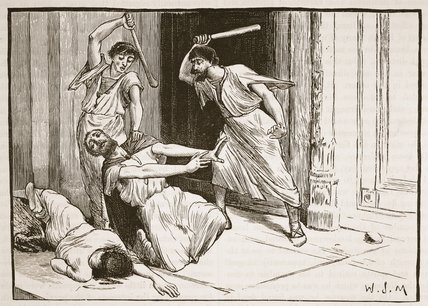
The murder of Tiberius Gracchus
Caesar’s heroic life force was transmuted into a tyrannical empire of decadence that continued to rule over its heroes with increasing decadence and expanding globalization. The Western Roman Empire initiated the destruction of the folkish spirit of Europe. Even if the Christian Church was syncretistic, it was for the sake of absorption to top-down control, not in the true sense of folkish foundations to a living whole or syncretic integration of past similar spiritual paths. Ever since, there has been a continual fragmentation of living cultures turning into increasingly centralized mechanizations of “culture” and religiosity, with various revolts of the spirit later subsumed by an acted-upon state of form/scripture worship.
The rebellion against tyranny — tyranny being various forms of the material void destroying a living culture — rose at various times in European history, from warrior kings beating back mercantile control to the signing of the Magna Carta to the revolt against the nobility in the French Revolution and the rise of Napoleon (like Caesar). As society becomes more decadent and civilization evolves, the reactions against the cultural fragmentation from decadence lead to abstracted top-down laws protected by governments just as likely to abuse power. Hero culture evolved in tandem from top to bottom, emphasizing the direction of duty to the whole — the fragmentation of European society since Rome has only folded right back along the same material void zeitgeist as reactions propelled it forward.
It is not the form that denotes tyranny but the direction missing from most modern understandings of the term — terms have become mechanized as society becomes increasingly lost in the material void as an end instead of spiritual and cultural synergism. Tyranny being one leader, the arbitrary majority, or the arbitrary minority, completely ignores merit and actual living cultures with cultural genesis. It treats all people as interchangeable and exchangeable in the forms of minority, majority, or ruler. The position itself, or stasis of forms, is given importance instead of the direction of culture and identity. Even the concept of noblesse oblige parallels this material shift, placing it as just a financial responsibility to the people instead of a duty to all aspects of a living whole.
Heroic Revolts in Materialistic Paradigms Lead to a Simulacrum of State with People as Cogs in a Machine
Enlightenment ideas about free speech and expression were a universalist response to extreme decadence within a heavily mercantile and detached governing system. Though the reasoning of the settlers in North America was heavily atomized and made to be about financial control, the heroic spirit of life was more vital in this rougher lived land with lines willing to traverse the ocean and brave harsher living. In every revolution and reaction to it, distortions of the material void are convoluted with aspects of the heroic spirit. Marx’s material dialectic did not appear out of thin air; many compounding distortions with much beauty and truth mixed over the last two millennia led to it. Hence, it is hard to label any point as ideal or as entirely wrong in these all-or-nothing vantages of blame when looking in hindsight instead of on a continuum folding into the next stage.
The Glorious Revolution was one example of the atavistic Protestant revolt of spirit against the repression of unquestionable centralized authority. It is easy to see this as a reaction to the fracturing of local folkish spirituality and identity before forced conversions, as it stemmed from the regions that took the longest to conquer. The desire to assert local autonomy against a centralizing cohesive force could not rid itself of the stasis of forms of scripture worship; it was still bound by what previously captured its essence. Thus, even speech became a stasis of forms and an end in itself instead of a means towards recovering missing authentic spiritual folkish culture. This later devolved into the factional killing of various Christian offshoots for dominance instead of letting there be differing local spiritual outlooks as is natural to people.
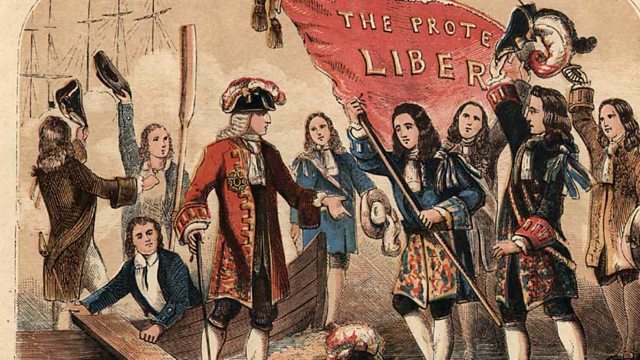
The Glorious Revolution
Many colonists were fleeing the violence for central control of spirituality and religious domination of Europe along with its decadent centralized exploitation of localities. It is interesting to look at the ideas of colonial rebels that recognized the harm of materialism but not the need for a living cultural unity to combat it. It helps us understand what they were reacting to from their vantage, even if their interpretation led further down the material void of individualism under the abstraction of state instead of as an individuated part of a living culture. They were so afraid of the form of tyranny as one ruler that they did not see the essence of tyranny as a material simulacrum without the direction of a living chain of connection in organic identity.
“If ye love wealth better than liberty, the tranquility of servitude better than the animating contest of freedom, go home from us in peace. We ask not your counsel or arms. Crouch down and lick the hands which feed you. May your chains set lightly upon you, and may posterity forget that ye were our countrymen.” Samuel Adams had the fire of the hero against decadence without the connected direction. From their vantage, they could not see outside the frame of reference for what was afflicting them nor what zeitgeist they were a part of. They had no idea it would lead to a new, more insidious form of tyranny.
Colonial America was far more rural in terms of interconnected exchange and bartering, unlike we see now with Walmarts and mass agriculture contrasted by those trying to live in isolation off the grid. They were the closest thing to totalizing localities since Sparta, with dueling being a significant factor in the legal protections of speech still tying it to a European honor code. Speech was unabridged in the legal sense, but the Founding Fathers never imagined a time when most of the nation would live in urban multiculturalism. This is why now, even with the legal simulacrum grown into the full strength of top-down detachment, we still see provocation as a part of distinguishing murder from manslaughter — similar to what would lead to dueling.
The 14th Amendment was the final stage of the disintegration of American identity from the top-down abstracted state. Free speech as a legal protection detached from cultural context was not anticipated, as we can now see in hindsight — modern times lacking communities, duty, or social cohesion allowed for the rule of law to create the tyranny it was trying to protect from. Ever since, the US has increasingly become a mechanizing power of globalism — an economic zone with interchangeable workers. Our government is a tool for leeching any value and worth out of money while financing globalization, including funding the UN against our interests. Our heroes are expended in the military-industrial complex that does not care for their interests other than in some abstract financial terms that increasingly shifted to global oligopoly impoverishment to continue to force our poor foundation into the meat grinder.
Abstract governments use the indirection of “free speech” as a mechanization to further harm any foundational cultural strength. Expressing frustration in social settings or worry in political ones is natural, yet instead demonized and made illegal. The ability to politically address the harm done by multiculturalism is suppressed with hate speech laws or the media-oligopoly smear campaigns. Then the frustration builds from subsequent clashing with primitive chaos with no outlet for redress. Yes, speech can be provocation within a cultural honor code. Still, in the context of multiculturalism, without redress of grievances, it is expected that Whites would express their frustration with invading groups in their speech.
Vented frustration caused by multiculturalism is increasingly used to justify other races attacking those of European ancestry. If there is an attack on a White person, liberals increasingly ask what provoked the attack — it is almost a form of entrapment. When slurs and insults are directed at Whites, it is considered free speech and encouraged by academia, the media, and most social media platforms. The slippery slope is very real, and “free speech” has rapidly become detached from the cultures, customs, and laws (like dueling) of its origin and used by the entire establishment to replace the founding stock of Western and European nations.
Engaging in the false dichotomy of abstracted “free” speech as a human right in our nations vs. “hate speech” as a suppressible provocation is a losing strategy because it accepts the inherent premise that our nations are not ours or there to protect our living cultures and ethnos. The Overton window swings back and forth between false dichotomies while moving further down the material void zeitgeist. This abstraction of free speech is protected in the direction of harming cultural cohesion and falsifying a superficial anti-culture to use Western and European people as the lynchpin of globalization. Cultural revolutions are perfect examples of the hidden direction of “free” speech.
“Free Speech” is now used as a trick of indirection to break the cultural foundation of nations that mechanized and detached states give this right to. “Speech” has never been free of direction or consequences. “Free Speech” is not without bias — that people think it shows how insidious internationalist tyranny is. Western and European patriots must recognize this to stop feeding into the losing side of a false dichotomy like neocons and economic-only conservatives have done for decades. It is futile to argue for free speech with other races invading our lands and those that support them because they will never understand or protect our living cultures with their speech. Our power structures will increasingly continue to infringe on our speech because they are legal systems in no way bound to the ethnos they are supposed to represent.
Speech must be directed at saving European cultures, not mechanized human rights-like “free” speech that is worthless and will not be heard by those in power because they have no accountability to our living cultures and facilitate our demographic replacement. Responsibility and power go hand in hand — this is ancient wisdom from archaic Greece. Free Speech is an illusion of individual power that harms those that uphold it because it places them in a losing uphill battle directed at replacing living cultures with universal laws under globalist tyranny. As things get worse, what wakes people up is a collision with the mainstream narrative, not accelerating our demise. By boldly speaking out against the hostilities done to Whites by invading forces, the lack of redress of our grievances, and governing systems that do not serve our living cultures no matter the consequence, more will be inspired to do so. Do not lose ground in arguing for the laws in legal systems not built to serve our people but instead demand isegoria and use true parrhesia.
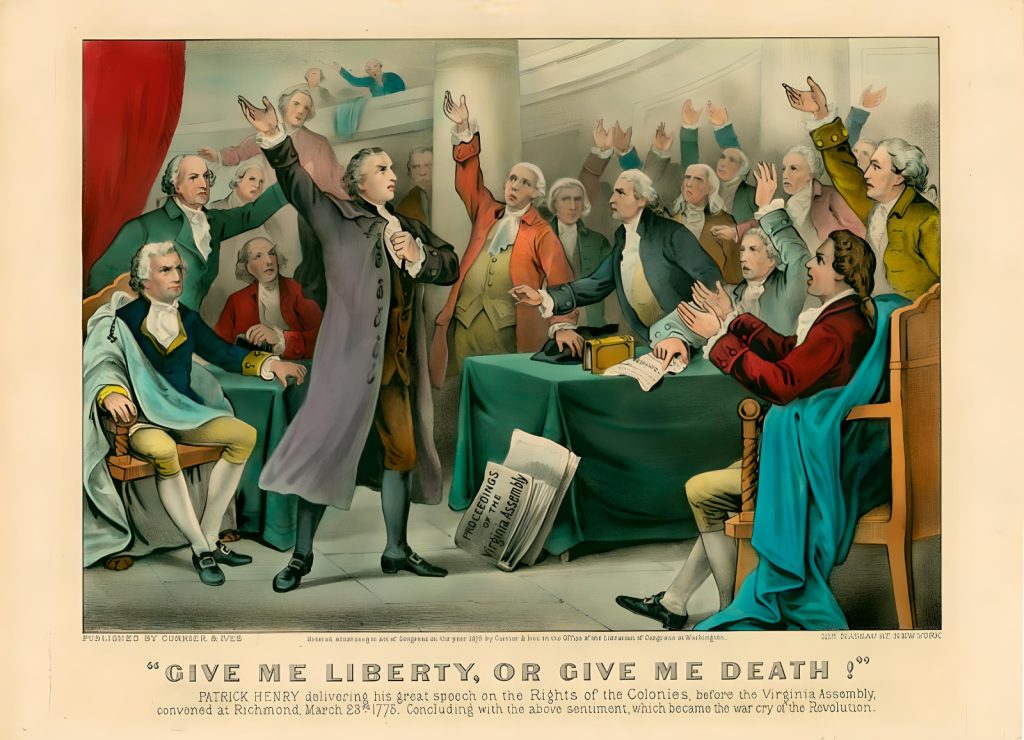
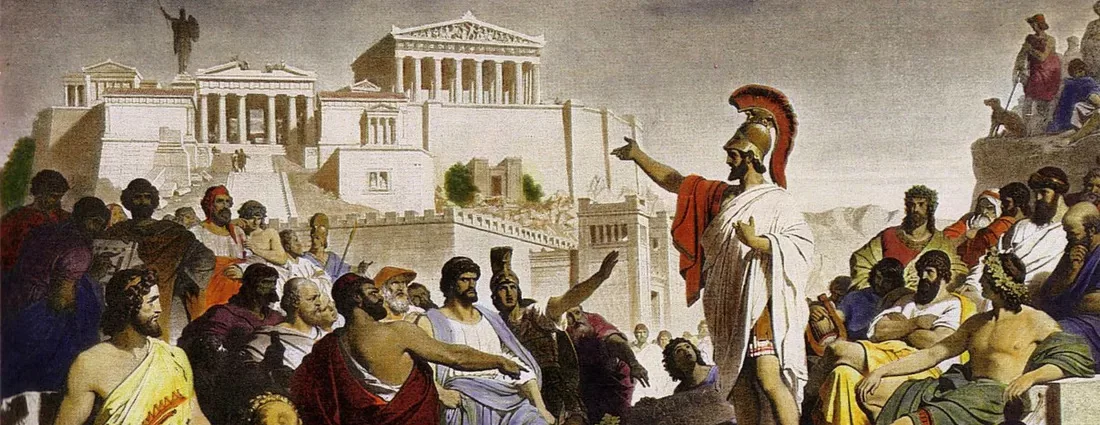









[…] became a means of destroying the religious rights and morals of these localities. Just as speech protections were never imagined outside of the context of cultural repercussions and danger, so did they never […]